Do the hustle: NYC’s work culture—as non-natives see it
28 mar 2022
7 min
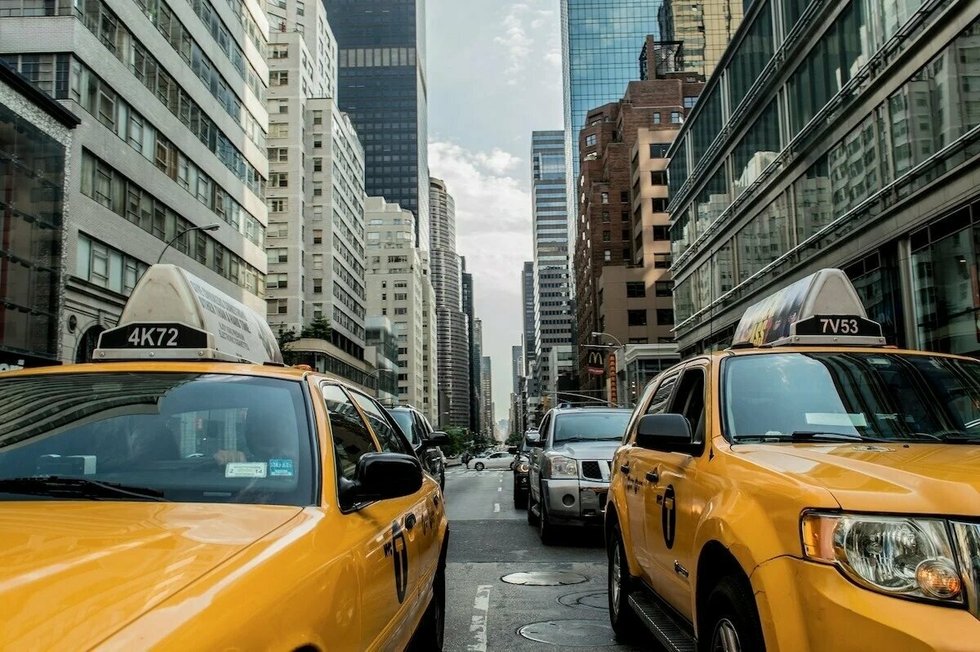

Journalist and translator based in Paris, France.
New York City’s history is stuffed with tales of migrants who have had to adjust to the concrete jungle’s daily grind. But with today’s hybrid working, the gig economy and the Great Resignation, do the traditional stereotypes about life in NYC still hold true? We asked a group of non-natives to give us an overview of the quirks, perks and pitfalls that stand out.
The City That Never Sleeps is on the brink of a rebirth. Although the New York City Independent Budget Office projects that pre-pandemic employment levels won’t be regained until late 2025, the city remains an economic hub that puts stars in the eyes of Americans and non-natives alike. According to a 2020 report by the Mayor’s Office of Immigrant Affairs, one in every three New Yorkers identifies as an immigrant—and this doesn’t take into account the numerous US migrants who relocate from out of state. Many uproot their lives for a career in the Big Apple, and plenty did it not just during but because of the pandemic.
These non-natives are essential to the life of NYC. They’re also a reflection of its cultural fabric. So when trying to make sense of what working and living in New York is like after the seismic shifts of Covid, who better to interrogate than inhabitants with a fresh perspective? We spoke to NYC-adopters from Paris to Seoul in careers from tech to comedy. Here are their opinions on networking, office hours and how this wild metropolis persists as the epicenter of so many professions.
What brings people to NYC? Work
Many feel that relocating to New York is the best—and sometimes only—way to get ahead in their career.
“For a corporate lawyer, this is still the best place to be. I know that if I leave New York, I’m leaving the most interesting and exciting market,” said Samyel Lee, originally from South Korea and now a fourth-year associate at a law firm. Tracy Broughton, a Canadian working in the high-value art world, agreed: “There are a limited number of cities where a career in my lane can thrive. It’s really only London, NY, Paris, Hong Kong and Dubai.”
For Jeff Medoff, a project co-ordinator by day and stand-up comedian by night, the big switch to remote working allowed him to leave his Boston office and telework from a Brooklyn apartment while tapping into a bigger, better comedy scene during off hours. “So far, I think my skills have improved a lot,” he said. “I’ve become more aware of networking and other professional conventions that are not as ubiquitous in Boston as they are in NYC.”
What’s the work culture like since Covid?
How has life changed in the Big Apple? “In NYC, before Covid, everyone was working a ton and bragging about it like it was their favorite coping mechanism,” said Jackie Genow, who was raised in small-town Michigan, worked as an epidemiologist in Paris, and is now head of marketing and communications at a tech firm. “Now it’s chilled out, people are tired and very much over work—which feels more French, except the French actually get holidays, sick days, and healthcare, to help them live better, non-work-centered lives.”
“In NYC, before Covid, everyone was working a ton and bragging about it … Now it’s chilled out, people are tired and very much over work…”
“Teleworking in NYC is much better because it cuts out a lot of commuting issues in the city—which are huge,” said Medoff. But there’s a caveat: “If you work from home here, you have to make an effort to go out and be in public, since most NYC living spaces are so small and can get claustrophobic after a while.”
“I’d rather telework from NYC versus other places I’ve lived, primarily due to the walkability,” said Sandro O’Neill, a data analyst born in Tbilisi, Georgia, who has work and educational experience in San Francisco and Pennsylvania. “Living in walkable areas or neighborhoods in other coastal US cities is not significantly cheaper, and NYC simply offers more in terms of entertainment and dining.”
“Being able to walk in Central Park, catch a show, or people-watch is good for my mental health and as a result, I’m more productive,” said Chris Riley, a campaign engagement director and impact producer for documentary film-makers, who has previously worked in San Francisco and Michigan.
“Being able to walk in Central Park, catch a show, or people-watch is good for my mental health”
Getting out there: How do you network in NYC today?
“There’s a lively social scene and it ties in to most people’s work life,” said Medoff. “So if you are aware the place is pretty fast paced and lean into that, it’s a fulfilling place to live and work.” Riley meets people while “out walking or at the theater. When I was at Union Square one time, I met a fellow photographer who is also a former producer at HBO. While I was taking some photos in Washington Square Park, I met a photographer for international martial arts.”
“There’s a lively social scene and it ties in to most people’s work life.”
Yet there are so many places to meet potential contacts, the choices can be dizzying. Identifying your passions can help you build your tribe. British-born Michael Brooks, founder of international executive search firm Brooks Quayle, said: “Being part of the LGBTQ community made it easier to make friends.” Solmy Lee, who works for the United Nations Office for Partnerships, identified which of her interests would link her with others right off the bat: “I plugged myself into a church and a running crew as soon as I arrived and that became a huge support system.”
There’s space to embrace your true passions. “I think where people struggle is that they might try to do whatever is in and not whatever they like. Just do what you want to do, because somewhere in NYC, someone, if not loads of people, are doing it. And those are your people,” said Genow.
“Just do what you want to do, because somewhere in NYC, someone, if not loads of people, are doing it.”
Social oddities
Many of the rules for adapting to NYC’s social life may feel like they could apply to any big city, but there are some social idiosyncrasies that tickle newcomers.
Looking good: “Fashion certainly is a focus when you walk around this city,” said Boston-bred Amisha Divadkar, who works in a healthcare IT company. “The work environment feels like a reflection of that same energy you feel on the streets. What you wear, how you wear it, and showing that you’ve put effort into your look is important!”
Small talk: “In NY, most small talk is about who you know, where you weekend, and what you do for work,” said Broughton. “It was the same [when I was] in the UK but it didn’t seem as intense as it is here.”
Email etiquette: For Samyel Lee, “European lawyers have a culture of beginning emails with ‘Dear so and so’ and ending with ‘Best regards.’ Seems minor, even too formal, but it goes a long way. I get really tired of these New York emails that begin with ‘Please send me…’”
How bad is the grind?
So is the working environment as tough as people think? “We often say that if you are having a good day, NY will make you feel like you are walking on clouds. But if you have a bad day, you will be walked on,” said Thaïs Lewko, a data science consultant.
For Samyel Lee, the work culture in NYC is a reprieve from Seoul but competitive nonetheless. “Other cities are plenty busy, but in New York you expect to be busy. You expect to experience the ‘New York minute.’ You expect everyone to be ambitious, even if that’s simply not true. There’s a mood in New York, an assumption that if you didn’t want to compete, if you didn’t want to climb high, you wouldn’t be here. Needless to say, this can be toxic and it can really damage people.”
“…in New York you expect to be busy. You expect to experience the ‘New York minute.’ …Needless to say, this can be toxic and it can really damage people.”
“It’s always a little weird for me to see people having difficulties taking all their vacation or having only 10 days of PTOs,” said Lewko. And Broughton agreed: “I know several people who have not taken a vacation in years and who don’t prioritize it. It’s almost a badge of honor. I am surprised that people strongly believe companies and businesses will fall if they, as an individual, take time off. Coming from an industry that regularly has people quit on the spot, it is totally laughable.”
“I know several people who have not taken a vacation in years and who don’t prioritize it.”
For some, however, this intense commitment to work is synonymous with making their dream a reality. “In NYC there’s a sense that everyone is working on their career in the place where trends get set, so there’s an extra urgency to what everyone is doing,” said Medoff. “My profession definitely makes a difference in how I thrive. I came here for a specific reason, comedy, and if I weren’t here for a pursuit I thought I really wanted, living in NYC would feel more overwhelming than beneficial.”
Yet no matter what the industry, NYC can impose unhealthy work situations that are hard to escape. “Visas are tied to your job,” explained Samyel Lee. “Your livelihood and quality of life are dependent on the visa. So the anxiety level is higher: ‘If I don’t perform well, I can lose my job and therefore my visa.’ Or, ‘I hate this job, they don’t pay me enough, I’m working 24/7, but they’re sponsoring my visa, so until I can get a stable, independent status, I have to suck it up.’”
“our livelihood and quality of life are dependent on the visa. So the anxiety level is higher.”
An empowering city
What can New York do for your career? “Compared to European countries, NYC work culture tends to focus on the positive rather than the negative, while still pointing out where you can improve, and giving feedback,” said Lewko. “I feel much more at ease with my legitimacy. Age also does not matter as much as in other places, and your opinion is really valued even as a junior.”
Yet NYC can also encourage growth in less-than-comfortable ways, according to Samyel Lee. “This city definitely pushes you to grow thicker skin and become more affirming in the way you approach work. There is always someone hungrier than you, very close.”
“My career wouldn’t be the same without NYC,” said Brooks. “You have to deal with aggressive and very forward people every day, from the morning commute to ordering a bagel. It forces you to learn to be strong and stand up for yourself! You deserve that bagel just as much as the next they/them!”
Advice to newcomers
So what recommendations do our experts have? “Come and try to find your people first,” said Genow. “Your community is what is going to help you find that great apartment or put you in touch with the right person for that job you want. New Yorkers help each other.”
“Your community is what is going to help you.”
“Don’t come here unless you have a pretty specific objective,” advised Samyel Lee. “The pressure will get to you and the glitz and glamor of NYC will distract you. If you do end up in New York, get out of Manhattan. Discover other boroughs and meet diverse people—artists, musicians, bankers, lawyers, scientists, businessmen, students. My New York City is different from his/her/their New York City. And you only get to experience as much as you are willing to.”
Photo: Welcome to the Jungle
Follow Welcome to the Jungle on Facebook on LinkedIn and on Instagram and subscribe to our newsletter to get our latest articles every day!

Más inspiración: Irse a trabajar a...
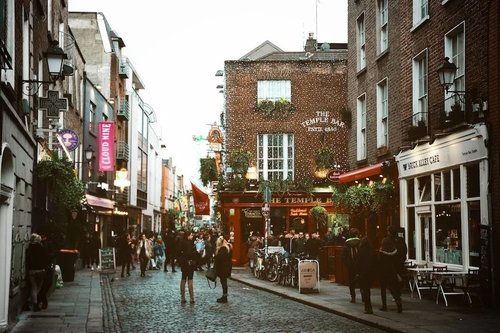
Fancy moving to Dublin, Ireland to work? Here’s what you can expect
Discover what makes Ireland's capital a top destination for professionals worldwide.
16 abr 2024
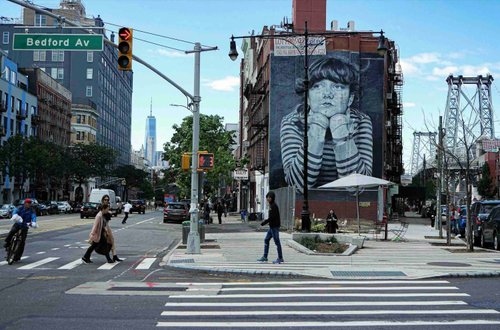
Moving to NYC for work? Here's what you need to consider
What is the reality of living and working in The Big Apple? The truth has to lie somewhere between Sex and the City and Taxi Driver.
10 ene 2024
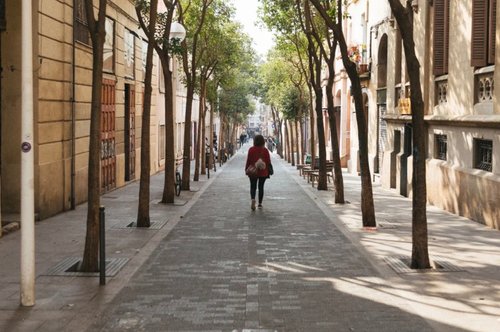
Fact or fiction: graduate programs in Europe are worth it
As soaring US tuition cost has caused a debt crisis, Americans are turning their eyes to graduate schools in Europe...
12 abr 2023
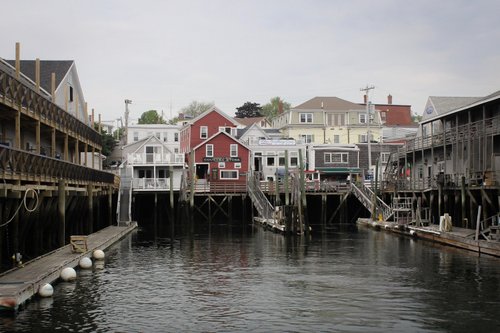
The 2023 guide to living and working in Portland, Maine
As the cost of living in East-Coast naves like Boston and New York keeps rising, Portland is emerging as a top choice for big-city defectors.
21 mar 2023
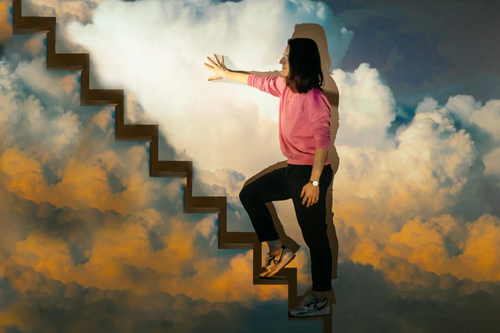
Moving to the country in a post-pandemic world
As remote and flexible work edges toward ubiquity, roughly half of Americans would already prefer a rural area to a city or suburb
13 feb 2023

¿Estás buscando tu próxima oportunidad laboral?
Más de 200.000 candidatos han encontrado trabajo en Welcome to the Jungle
Explorar ofertas